Kenya
The content of a primary school textbook for Kenya’s Kiambu County has generated a wave of criticism and accusations of ethnic bias on social media.
The page 36 of the Comprehensive Social Studies textbook for Standard 4 pupils which generated the controversy was tweeted by a journalism student for its definition of the occupations of other ethnic groups in the county.
Just wow ! Kenya is sicker than we are even imagining ! pic.twitter.com/BQDcMM8lx2
— Leon Lidigu (@LeonLidigu) November 11, 2017
The book says “some” Bantu speakers in the county “work in the flower farms, coffee farms and tea farms”, while “most” of the Cushites including the Somali and the Borana “moved to Kiambu from other countries to work in offices and trading centres.”
The next sentence that stoked the controversy talks about the Nilotes who include the Luo, Kalenjin, Turkana and Maasai ethnic groups. It says: “Most of them work in large flower farms, tea farms and coffee farms.”
The tweet elicited over a hundred replies which were condeming the county and the education authorities for not scrutinizing the textbook properly and allowing such “inaccuracies”.
A Twitter user by name Jane Bisanju said: “I saw it with my daughter and I felt disgusted. The difference between you and I is that you at least pointed it out…” > I saw it with my daughter and I felt disgusted. The difference between you and I is that you at least pointed it out….wmnjoya have you seen this?
Another Twitter user Mohamud J blamed the education authorities saying: “Its important to note that KICD is mandated with reviewing and evaluating such curriculum material. So who is sleeping on the job for such biases and incorrect info. Its something to do with KICD and not Govn Waititu.”
Its important to note that KICD is mandated with reviewing and evaluating such curriculum material. So who is sleeping on the job for such biases and incorrect info. Its something to do with KICD and not Govn Waititu.
— Mohamud J (@mjalimire) November 13, 2017
Eugene Akello tweeted: “Donno whether to cry or to weep?!! stereotyping, tribalism, this is just sick. searing a thought into a kids mind.”
Donno whether to cry or to weep?!! stereotyping, tribalism, this is just sick. searing a thought into a kids mind.
— Eugene Akello (@swedenhill) November 12, 2017
Others also think there is no problem with the content when the determiner “some” and superlative “most” are used.
However, this has ignited the debate about Kenya’s ethnic division which has influenced the creation of a political divide evident during its contested presidential elections of August 8 and October 26.
The East African country has 44 recognised tribes with the latest being the Asian community. Inter-ethnic clashes have been recorded in the past and traditional, political and religious leaders continue to preach inter-ethnic and religious tolerance.
The Kikuyus are Kenya’s largest ethnic group, comprising an estimated 22% of the population followed by the Luhya, Luos and Kalenjin.
Below are some reactions to the textbook described as ethnic biased.
we now have a bigger problem than we thought
— Mkenya Mzalendo (@JKwoma) November 12, 2017
This isn’t right, Building a strong case for genocidal acts, Us Vs them. Very dangerous! How about the same content in Kajiado, Mark, Molo, Laikipia? The notion that you can’t be a land owner in a certain area.
Ole_kaparoand FredMatiangi we need action.— Stephen M. W (@STEMULI3) November 12, 2017
You mean this book was approved by KIE and ministry of edu and all those ‘s**t bodies which are supposed to do quality analysis?
— Odhiambo Issa (@Odhiambo_Issa) November 12, 2017
hehehe, with all the inaccuracies and it’s still called “comprehensive”
— oscar omondi (@oscaromondi2007) November 12, 2017
The humiliation when such kids meet those from other countries that will have a better understanding of Kenya! Shameful & myopic
— Milcah Asamba (@MilcahAsamba) November 12, 2017
And at the end of the day the exam is the same…..We should be worried.
— jane Bisanju (@janeBisanju) November 11, 2017
So our kids should be told that Cushites and Nilotes are originally from Kiambu County?Those who work in flower farms as graders,Engineers and managers and are nilotes were born there?Wacheni ufala..You cried for Majimbo,that’s what it is..Kiambu lives Matter too..Nkt
— Emilio (@EmilioMwas) November 11, 2017
hahahaha I don’t think whoever posted is malicious… Whoever approved kids to read such is malicious
— king elf (@king_elf33) November 11, 2017
It’s not about them….. it’s about us,the moment you exalt one tribe above the rest,the moment you treat some people as 2nd class citizens hate and division will reign.
— Maako (markessau) November 12, 2017EmilioMwasyou should be worried.
Propaganda and ethnic prejudice being introduced to the kids at very young age.
— Nzeka (@BreezeWhizz) November 11, 2017



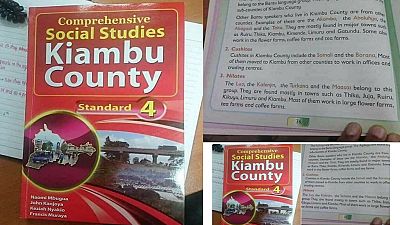

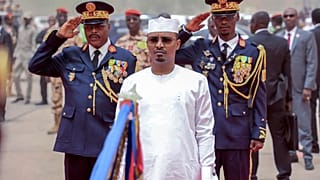

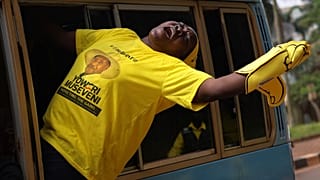

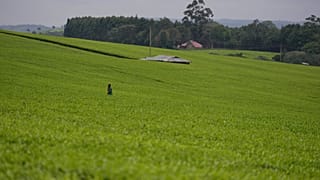
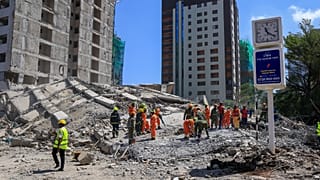
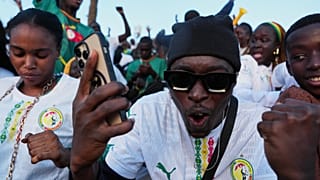
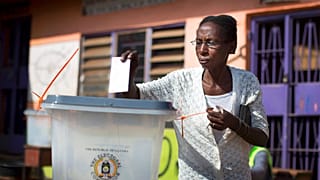
01:00
Videos of Iran protests spread as internet returns
02:06
Kenya: Barber gains viral fame with unconventional techniques
Go to video
South Africa raids US refugee centre, arrests seven Kenyans
01:58
Femicide not officially recognised in Kenya despite rising cases
00:03
Court suspends Kenya-U.S. $2.5 billion health cooperation deal
01:03
Some tourists may need to provide five year social-media history for US entry